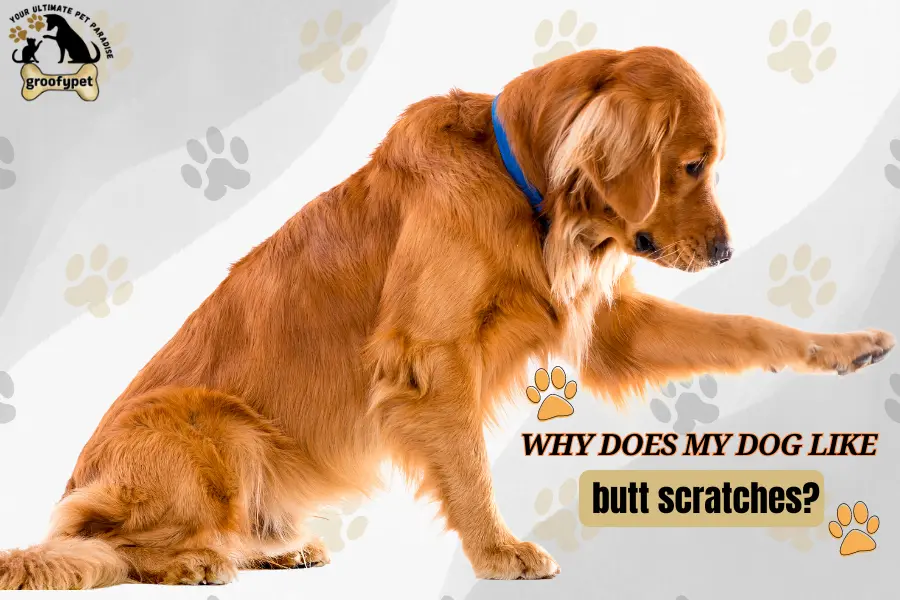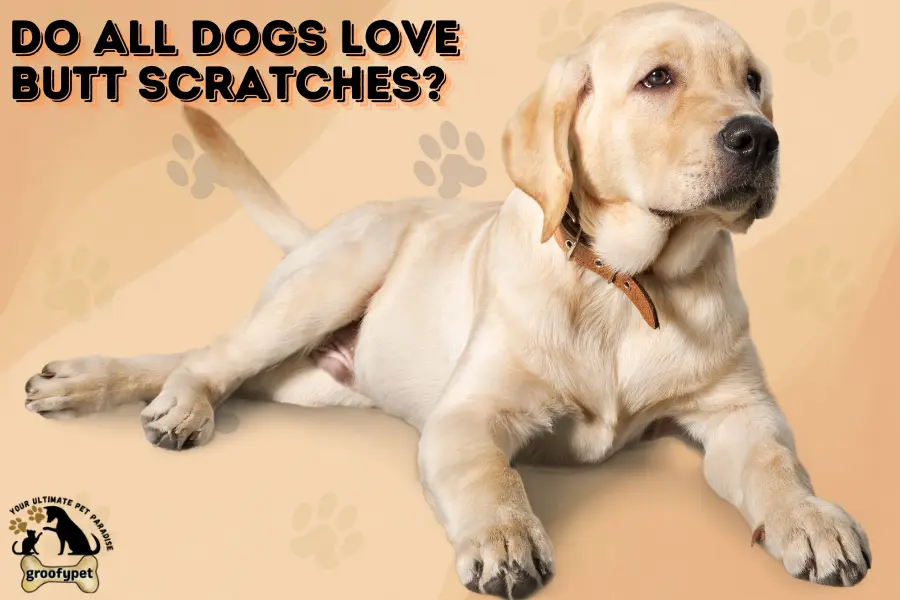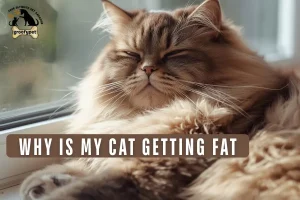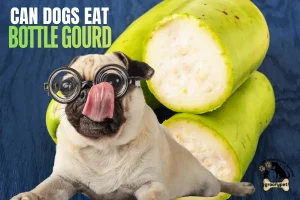Have you ever realized that your dog gets all friendly and wiggly when you rub its head close to the root of its tail? It is not just any place that makes them feel happy there is a lot more to why dogs enjoy having their butts scratched. Although, it may seem to be just another unique dog trait, knowing why this affection is observed will help to foster the relationship that one has with the pet even further.

Everything from the physical structure of a dog’s body to the cues the dog provides and even the benefits of the wag, there is far more to those little moments than one may initially think. In this article, you will discover more about why this apparently ordinary action could be such a pleasure for dogs and what you can do to make your pet joyous as well as vigorous.
Whether this is your first time as a dog owner or you have been experiencing the joy of owning a pet, getting to know why your pet loves the butt scratch as against the belly rubs and back scratch can be fun.
Table of Contents
ToggleWhy Does My Dog Like Butt Scratches? The Anatomy of Enjoyment
When your dog begs for a butt scratch, it’s because the base of their tail has many nerve receptors, making it a highly sensitive area that they can’t easily reach. Scratching this spot brings them pleasure and relief from an itch they can’t scratch on their own.
Why Does My Dog Like Butt Scratches. Do all dogs love butt scratches?
Numerous dogs enjoy being scratched on the bum, but if any dog is dividing its attention, it knows it doesn’t. As is always the case, one must consider the temperament of the dog, its prior interactions with someone providing butt scratches, and possibly even the individual who is performing this procedure with their hands. Closely observe your pet’s response, and do not attempt to interact with them if you see that they are uncomfortable.

If your dog complains, withdraw your hand and cease touching the area in question if your dog seems afraid or uncomfortable.
You should also seek advice from a veterinary person.
- Dogs enjoy butt scratches since they have many nerve endings at the base of the tail.
- Scratches activate the rewards center in dogs and so the dogs feel happy.
- Some dogs do not like their hind end to be touched; look at their body language.
- The positive signs include tail alert and close eyes.
- If unsure about scratching, try the belly rubbing or petting.
How do you know that your dog enjoys his rear end being rubbed?
While you may fancy scratching your dog’s behind, your pet probably doesn’t favor it. Here are a few cues to look out for during your rump itching sessions: Here are a few cues to look out for during your rump itching sessions:
- Your dog puts its tongue out while making some particular gestures in the air
- Tail waving
- Gentle snugging
- Closed eyes
- A relaxed and lightened body language
Behavioral Cues
Dogs have been known to speak without even making a sound; in other words, they know how to communicate their needs. As far as butt scratches are concerned, they are very expressive about it with their body language.
If you have ever found your dog spinning around and acting like something on their tail needs to be hiked off, then think again: this is a body language sign that your dog wants you to scratch its hindquarters. This is the dog’s way of telling you, “Hey, can you reserve that spot for me?”In addition to this, this behavior is very critical in the establishment of social relationships.
It is an excellent sign of submission or plain, old-fashioned love when a dog offers its back to be rubbed. The butt is a susceptible body part, and for your dog to present it to you consciously, then they are comfortable with your association. This simple act of scratching can, therefore, enhance your relationship with the dog and tell him that you still trust and love him.
Also, dogs have chances to understand that turning rumps brings pleasure and happy wags from masters. If they constantly get a positive response to this behavior, this may become a standard way of their interaction. These behavioral signals assist you in identifying what your dog is communicating and strengthen the relationship between you and your pet.
Pleasure Indications vs distress indications
Although many dogs love the feel of a good scratch on the back .one should ensure that one’s observations are keen to identify the dog’s reactions. All dogs do not respond the same way, and their expressions are enough to tell whether the interaction is acceptable to the dog or the dog is uncomfortable.
Positive Responses
- If your dog is enjoying the butt scratches, he will be as eager as you are to continue receiving them.
- You might see the established tail going around with joy or even notice them shifting their body so that their entire weight rests on the palm as if the feel of your touch is the best thing that has ever happened to them.
- Some breeds will lay their heads down and shut their eyes or lay down with their paws tucked in if they are comfortable.
- These signs show that your dog enjoys the scratching and desires it to go on.
Negative Responses
- On the other hand, not all dogs like to be scratched behind, and it becomes essential to administer this technique when the dog seems uncomfortable.
- One will include withdrawal which can indicate that the dog will move away from the hand, aggression such as growling and the more subtle signs of discomfort such as licking the lips, yawning and averting the eyes.
- Most of these signals convey to you that your dog is not at all comfortable with the situation at hand and would, instead, come to an end.
- Being an owner, one should never force the pets to interact if they are uncomfortable due to painful experiences.
Knowledge of these cues is instrumental in ensuring your games and other forms of physical interaction are pleasant for the dog, hence improving the bond of mutual trust between you two. It is simply about embracing the exercise of monitoring each dog and accommodating him or her in the peculiar way that they see fit as puppies.
Beware the Butt Dragging
But what I’m not talking about here is another behavior that I think is worthy of note before we close out for the day.
Dog Dragging Butt Outside Picture By Toe Beans
Itching is one thing when it is at the top of the rump, by the base of the tail. And it’s a very different thing when it’s around the back side, around the area of the anus and the smell glands.
If that is the place that is itching, then your ‘fur baby’ would not be coming around to beg for a scratch. Well, they are not to be walking; they will be hurrying. Scooting is worse behavior, not simply because it may spread ‘dust and debris’ around the house, but because of what it represents.
Possible causes of dog scooting include:
Inability to empty the anal glands or the situation when the secretion is blocked. If those scent glands are backed up, your dog will want to get them draining again, so he’ll hurry. At best, this can give one a smelly trail around; at worst, one of those glands could be infected or pop from an infection.
Grooming problems
In some cases, especially with dogs, when you trim their hair, they are likely to develop what is referred to as clipper burns. This is a skin affection that occurs when the fur is pulled or shaved too close, damaging the skin. It can be itchy when in the process of healing.
Worms
Worms, especially intestinal worms, are among the more dreadful causes of scooting. Since little is known about worms, let me take my time to explain them to you. These parasites can cause many troubles in time, and at the same time, they are rather difficult to notice until they become large enough to cause an itch around the rear part of the body.
Scooting is usually one of the first signs of worms being around and might be the right time to start medicating.
Why Does My Dog Love Butt Scratches? Understanding the Potential Health Concerns
Sure, all dogs love a good scratch on their butts as long as no health issues are causing them to do so. In some cases, it is possible to perceive some excesses of a dog with an excessive desire to scratch.

Excessive Scratching
- If your pet is constantly seeking to have the rear end touched.
- They may be the ones who scratch the region frequently, these could be signs of a health problem.
- Some of the issues are diarrhea, itchiness, skin rashes, allergic reactions, and even anal gland problems.
- The skin may be itchy due to allergies that your dog attempts to relieve.
- skin reactions that parasites or infections might bring about.
- Other issues that are known to irritate are located in the gastrointestinal tract.
- Still, also they are not exclusive to anatomic areas and include anal gland issues, which are known to cause discomfort or actual pain.
Signs to Watch For
- Look for signs of a particular disease or illness that might be present in a client.
- These may be a foul smell emanating from your dog’s anus, lack of hair or inflammation of the skin in the area,
- Excessive scooping across the floor to try and eliminate a pain that they are experiencing.
- If you have especially seen any of these signs, you may need help.
When to Consult a Vet
- If you see your dog scratch more than usual or have some warning signs listed above, consult your veterinarian.
- They can indicate if there is a problem and suggest how to treat it.
- It could be an allergy, dermatological problem or, if needed, the expression of the anal glands.
- These symptoms require regular check-ups.
- If they are noticed, they should be attended to early so your dog will be healthy and free from discomfort.
Knowing these possible health issues will help one get to make sure that the fun and togetherness of such butt scratches wouldn’t pose any threats to the well-maintained health of the dog. Even small undone affairs may become a significant problem; thus, constant attention to your dog’s actions and reaction to its actions or inactions will be proper to ensure they are always healthy and happy.
Frequently Asked Questions
Why Does My Dog Put His Butt on Me?
All kinds of dogs of different sizes and breeds demonstrate their love and protectiveness by presenting and then rubbing their bums on people. All of them are the same in the sense that any of them can be affectionate from behind. You know, your dog is loving when he lays his butt on you; that should be something you are proud of. For this reason, they think that is how they show they love you.
Why do dogs become happy when their bum is scratched?
To summarize it in the simplest of terms, it is possible to say that, for instance, when you rub the base of your dog’s tail, it just feels nice. It is an area that one has to look at with a lot of care because it is densely packed with nerve receptors.
Why does my dog enjoy being scratched on her lower back?
Indeed, the general response to why people do it is usually that it feels good. This is particularly so if you were to tickle the area on their backs just near the tail end. As is true for those difficult to reach areas of our backs, the dogs also enjoy having that area touched.
Final Thoughts
Despite possibly appearing as another oddity in dealings with one’s pet, these are not simple paw harassments of one’s dog but reflect more profound facets such as morphology, behavior, and sociability. It is an advantage to know why your dog loves this kind of attention as it goes a long way in understanding more about the pet, the satisfaction they get when you engage in the mentioned behaviors and most of all, the trust they accord you in the whole process.
By observing your dog’s reactions – including the friendly ones and the signs of discomfort – you will be confident that you and your pet are having fun and the pet is not being harmed. Also, awareness of the early symptoms of health problems like excessive scratching or scooting, signs of worms and the like will enable health complications to be detected earlier and rectified to ensure your little buddy remains happy and healthy.



